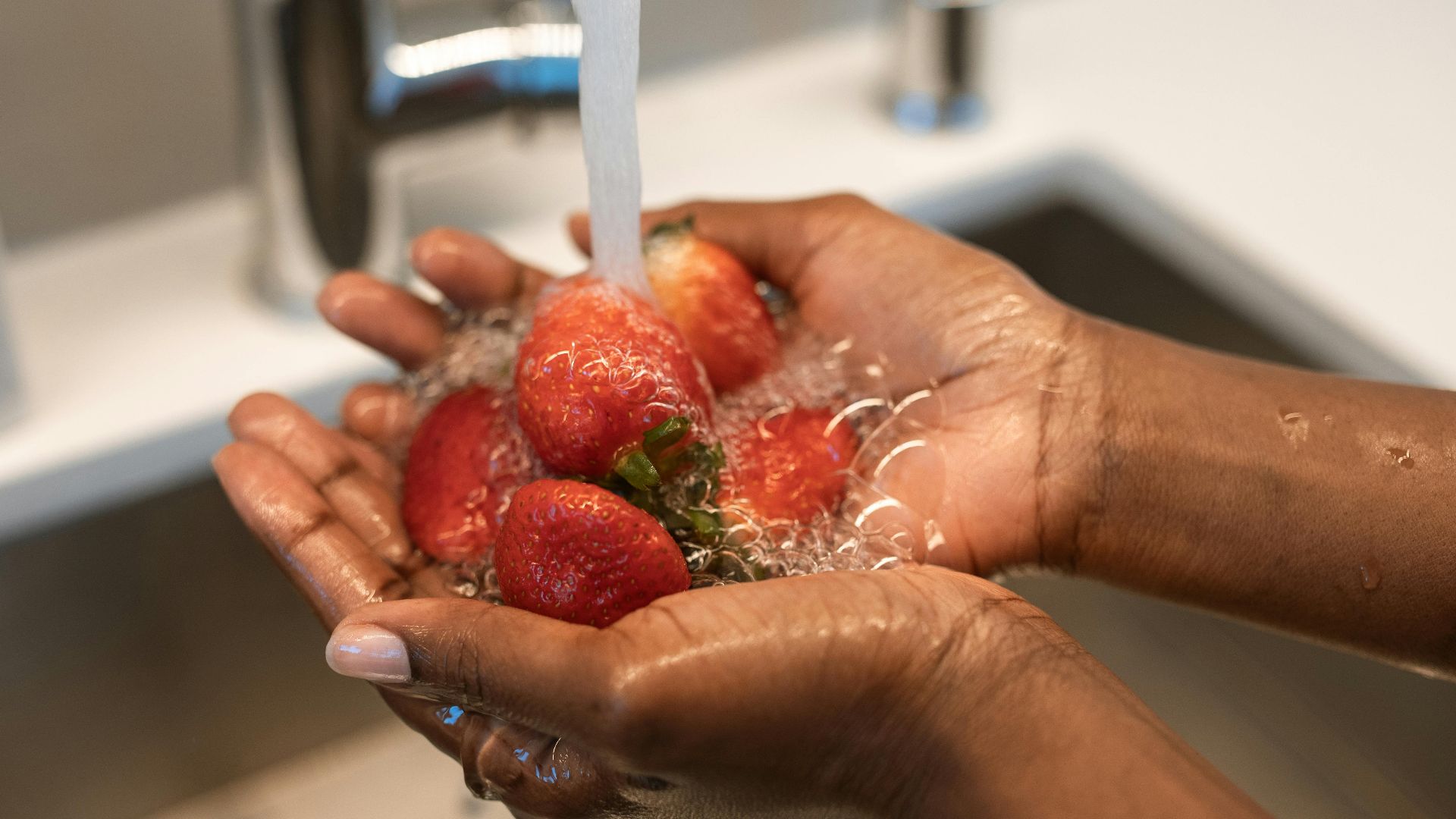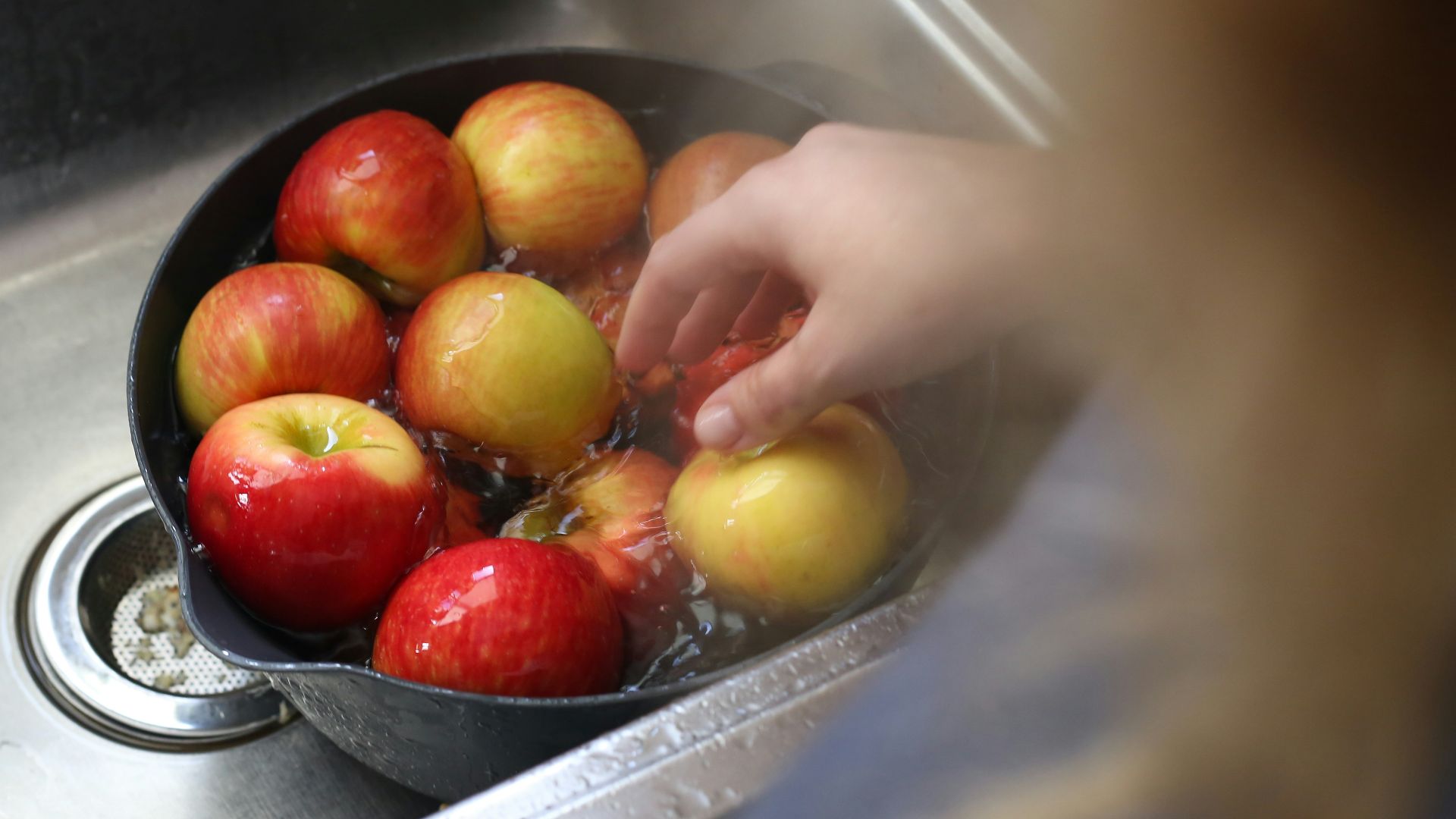Are You Washing Your Fruit Before You Eat? Here's Why You Should Do It
Most of us are in the habit of washing our fruits before eating them, but does running grapes under cold water for a few seconds really do anything? According to the Centers for Disease Control and Prevention, the US's national public health agency, yes, it does.
Why wash fruits?
Aside from ensuring you're not eating dirt and debris, rinsing fruits also rids them of germs and bacteria that could have accumulated on them from all the hands and machines they've passed through between the farm and your table. This can prevent you from becoming infected with diseases like norovirus, the most common cause of food-borne illness. It also protects you from Salmonella, E.coli, and Listeria. What's more, it can significantly reduce pesticide residues on fruits and insect eggs, such as those from fruit flies.
How to wash fruits
While quickly running smooth-skinned fruits like apples or grapes under a tap for a few seconds might do the trick, more porous ones like strawberries, which soak up more contaminants through their tiny holes, should be rinsed for at least 15 to 20 seconds. Before washing, cut off any damaged portions of the fruit. Then run it under the tap, rubbing or scrubbing off any dirt. Finally, dry it with a clean cloth or paper towel. Make sure wherever you place it after washing, whether it's your kitchen counter or a plate, is clean. If you really want to ensure your fruits are bacteria-free, research has suggested that soaking them in a solution of baking soda and water or vinegar and water may be especially effective at killing germs. Just make sure to rinse them well afterwards to preserve the flavor. Don't use soap or detergent to wash your fruits, as they may not be safe to consume and can make you sick. You can, however, use a small scrub brush on fruits with tougher skin to remove the dirt. Hold off washing some more delicate fruits like berries until right before you're going to eat them, because when they're wet, bacteria grow more quickly on them and they spoil easily. For fruits with a thick peel, like oranges and bananas, a wash isn't necessary as bacteria aren't able to break through the thick outer layer. For other fruits like apples, even if you're planning to peel them, you should still wash them beforehand, as bacteria can slip past the thin skin. If you purchase fruits in containers labeled "pre-washed," you do not need to rinse them. In fact, washing them might actually increase the risk of contaminating them from your sink and utensils.
Although washing fruits is an essential step, whether you buy them from a regular supermarket or a farmers' market, it doesn't protect you from all bacteria. If a fruit is contaminated with something like E. coli, or if it has a crack or bruise allowing bacteria to penetrate the skin, giving it a good rinse may not cut it, so you should still pay attention to recalls and use caution. That being said, washing produce still mitigates contamination risk, so next time you grab a quick snack, take a few extra seconds to rinse your fruit.
KEEP ON READING

Why Freeze-Dried Candy Is the New Popcorn

The 3 Most Misunderstood “Healthy” Foods

The Ugly Truth Behind Diet Sodas






